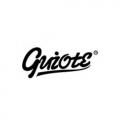Jenna Miller
posted a blog.
Understanding the Cost of ISO 27001 Certification
Why ISO 27001 Certification Matters
ISO 27001 certification helps organizations build strong information security systems. In 2024, the cost of this certification depends on several factors, such as the size of the organization, location, complexity of operations, and the certification body chosen. Costs vary between countries, with pricing differences seen in India and other regions worldwide.
This blog explains the factors influencing ISO 27001 certification costs and what organizations can expect when pursuing it.
What is ISO 27001 Certification?
ISO 27001 is a globally recognized standard for managing information security, developed by ISO (International Organization for Standardization) and IEC (International Electrotechnical Commission).
The certification ensures organizations:
• Protect sensitive information.
• Maintain confidentiality and integrity.
• Prevent unauthorized access and breaches.
Achieving ISO 27001 certification shows that a company follows the best security practices, giving clients and partners confidence in its data protection standards.
How Much Does ISO 27001 Certification Cost?
The cost of ISO 27001 certification in 2024 can range from $15,000 to over $100,000, depending on the size and complexity of the organization. Below are the main costs involved:
1. Training Costs
o ISO 27001 Lead Auditor Training: $500–$2,000 per person.
2. Audit Fees
o External Audits by Certification Bodies: $5,000–$15,000.
3. Consulting Services
o Consulting fees: $10,000–$50,000, depending on the support required.
ISO 27001 Certification Costs in India
Certification costs in India are generally lower compared to the US or Europe. Here's a breakdown for medium-sized organizations:
• Average project cost: ?3,00,000 to ?15,00,000 ($3,600 to $18,000).
• Small businesses: ?4,00,000 to ?8,00,000.
• Medium organizations: ?12,00,000 to ?20,00,000.
• Large organizations: ?41,00,000 to ?82,00,000.
For individuals pursuing ISO 27001 Lead Auditor certification in India:
• Course fees: ?30,000–?50,000 ($360–$600).
• Exam fees: ?15,000–?25,000 ($180–$300).
Key Factors Affecting Certification Costs in 2024
1. Scope of the ISMS
o A smaller scope reduces costs but limits certification coverage.
o A broader scope increases costs due to more audits and resources needed.
2. Size and Complexity of the Organization
o Larger companies with complex systems or multiple locations incur higher costs.
3. Geographical Location
o Costs are higher in regions like North America and Europe compared to India.
4. Consulting vs. In-House Training
o Hiring consultants is costly. Training in-house staff as lead auditors can reduce long-term expenses.
Additional Costs
1. Annual Surveillance Audits
o To maintain certification, organizations must undergo yearly audits, costing $3,000–$7,000.
2. Training and Skill Updates
o Regular updates for employees cost $500–$1,000 per person per year.
3. Compliance Software
o Tools for monitoring and compliance cost $1,000–$10,000 annually.
Is ISO 27001 Certification Worth It?
Though expensive initially, the certification offers these benefits:
• Reduced Risk: Protecting data prevents costly breaches.
• Enhanced Customer Trust: Certification builds confidence and opens new markets.
• Lower Audit Costs: Training employees as auditors reduces the need for external audits.
Conclusion
ISO 27001 certification is a smart investment for companies aiming to strengthen data security. In countries like India, cost-effective options make certification more affordable. Training employees as lead auditors and using compliance software can further reduce expenses while ensuring a robust security framework.
To explore ISO 27001 Lead Auditor certification costs and training, visit NovelVista's ISO 27001 Certification course page.
Be the first person to like this.
Jenna Miller
posted a blog.
In today's digital age, where data breaches and cyber threats are constant concerns, organizations must adopt robust measures to secure sensitive information. ISO 27001 is the globally recognized standard for establishing and maintaining an Information Security Management System (ISMS). Among the certifications associated with ISO 27001, the ISO 27001 Lead Auditor Certification stands out as an esteemed credential for professionals aiming to specialize in information security auditing. This certification not only validates an individual's expertise in auditing ISMS but also places them in a pivotal role in ensuring an organization's compliance with information security standards. In this essay, we will explore the ISO 27001 Lead Auditor Certification in detail, including its framework, the significance of the certification, and the skills and opportunities it offers to professionals.
The ISO 27001 Framework: A Global Standard for Information Security
ISO 27001 is part of the ISO/IEC 27000 family of standards that focuses on information security management. It provides a comprehensive framework for establishing, implementing, operating, monitoring, reviewing, maintaining, and continually improving an ISMS. This framework includes policies, procedures, guidelines, and associated resources tailored to the specific security needs of an organization. The standard focuses on preserving three primary security objectives:
1. Confidentiality: Ensuring that only authorized personnel can access sensitive information.
2. Integrity: Safeguarding the accuracy and completeness of information and its processing methods.
3. Availability: Guaranteeing that authorized users have access to information and systems when needed.
ISO 27001 serves as a structured approach to managing sensitive company data so that it remains secure. This standard provides a holistic approach to identifying and mitigating information security risks, making it an ideal foundation for companies to address security threats proactively.
Overview of the ISO 27001 Lead Auditor Certification
The ISO 27001 Lead Auditor Certification enables professionals to conduct independent audits of an organization’s ISMS, ensuring compliance with ISO 27001 standards. Becoming a certified lead auditor involves extensive training in ISO 27001 requirements, risk assessment methods, and audit principles and procedures. The certification focuses on developing skills necessary to conduct audits effectively, including:
• Audit Planning: Preparing audit plans, including objectives, criteria, and scope, to ensure the audit meets intended outcomes.
• Audit Execution: Conducting the audit by gathering evidence through interviews, observation, and document review to verify compliance with ISO 27001.
• Audit Reporting: Preparing and communicating audit findings and corrective actions in a structured manner to support the organization in addressing gaps and improving its ISMS.
• Follow-up: Verifying that corrective actions have been implemented and are effective.
Training for the ISO 27001 Lead Auditor Certification is typically provided by accredited organizations and includes both theoretical knowledge and practical, hands-on experience. Candidates learn about different audit approaches, risk management strategies, and how to identify vulnerabilities in information security. This rigorous preparation ensures that certified lead auditors are equipped with the expertise required to uphold ISO 27001 standards in various organizational contexts.
The Importance of ISO 27001 Lead Auditor Certification
Obtaining the ISO 27001 Lead Auditor Certification provides numerous benefits, both for the individuals seeking to advance their careers in information security and for the organizations that employ them. Here are several reasons why this certification is valuable:
1. Global Recognition: ISO 27001 is recognized worldwide, and possessing the ISO 27001 Lead Auditor Certification establishes a professional's competency in information security auditing on an international scale. It validates an individual’s ability to conduct thorough audits, adding credibility and authority to their profile.
2. Enhanced Career Opportunities: With data security a top priority for organizations across sectors, the demand for certified lead auditors is high. Professionals with this certification can explore roles such as Information Security Consultant, Compliance Manager, and IT Auditor, with excellent career growth potential. Moreover, the certification offers competitive advantages in sectors like healthcare, finance, IT, and government, where data protection is critical.
3. Compliance Assurance: For organizations, ISO 27001 compliance is often a regulatory requirement or a strong competitive differentiator. Hiring ISO 27001 Lead Auditorensures that the organization’s ISMS aligns with international standards, reducing the likelihood of data breaches and associated legal and financial consequences.
4. Building a Culture of Security: Certified lead auditors play a significant role in fostering a security-aware culture within organizations. They provide valuable insights into improving security policies, strengthening risk management frameworks, and promoting best practices. This, in turn, helps create a resilient organizational environment that prioritizes data protection.
Core Skills and Expertise Gained from ISO 27001 Lead Auditor Certification
The certification equips professionals with a unique blend of skills and technical expertise, enabling them to handle a wide array of responsibilities. Some key areas of expertise developed during certification training include:
1. Risk Assessment and Management:
o ISO 27001 lead auditors are skilled in identifying potential security threats, assessing risks, and determining the effectiveness of risk treatments. They understand how to implement and assess controls to protect an organization’s information assets, tailoring solutions to meet specific risk profiles.
2. In-depth Knowledge of ISO 27001 Requirements:
o Certified lead auditors are proficient in interpreting and applying ISO 27001 clauses and controls to real-world scenarios. They understand the structure and requirements of the standard, including the necessary documentation, control measures, and performance metrics.
3. Audit Principles and Techniques:
o Training includes practical experience in conducting audits, which involves learning various audit techniques, such as document reviews, interviews, observations, and analysis. This equips them with the ability to evaluate compliance systematically and impartially.
4. Communication and Interpersonal Skills:
o Auditors often need to communicate complex information security requirements and findings to a diverse audience, including technical teams and executive management. The certification hones their ability to present audit findings clearly, fostering cooperation and facilitating improvements.
Career Paths and Opportunities for Certified ISO 27001 Lead Auditors
The ISO 27001 Lead Auditor Certification opens doors to numerous career paths. Certified auditors can work as internal or external auditors, consultants, or ISMS managers. Organizations across various industries, including finance, healthcare, and technology, highly value certified professionals who can provide guidance in establishing and improving security protocols. Certified lead auditors may also work independently, offering audit services to multiple clients as third-party auditors. Their expertise is instrumental in helping organizations maintain a robust security posture.
Beyond auditing roles, certified individuals may move into leadership positions within information security or risk management teams. For example, positions such as Chief Information Security Officer (CISO) or Compliance Director often seek professionals with a strong foundation in ISO standards and auditing skills.
Conclusion: The Value of ISO 27001 Lead Auditor Certification in Today’s Digital Landscape
In an era where data is a critical asset, safeguarding it is paramount. ISO 27001 provides a robust framework for securing information assets, and the role of a certified lead auditor is essential in ensuring an organization’s compliance with this standard. The ISO 27001 Lead Auditor Certification is more than just a credential; it signifies a commitment to information security excellence. This certification enables professionals to conduct thorough ISMS audits, drive compliance efforts, and build security-conscious cultures within organizations. For individuals pursuing a career in information security, this certification offers rewarding opportunities and the ability to make a meaningful impact on the safety and security of data globally.
In summary, the ISO 27001 Lead Auditor Certification is a testament to a professional’s skill and dedication to information security. For organizations, hiring certified lead auditors is an investment in robust security practices and compliance, while for professionals, it represents a significant step forward in a career centered around protecting and preserving critical information assets.
Be the first person to like this.
Jenna Miller
is now friends with Guiote Golf
Guiote Golf
Gender:
Male
Location:
Shenzhen City, China
Be the first person to like this.
Jenna Miller
posted a blog.
From the start, Fabergé eggs were just planned for Russian eminence. Let us go through this story of this Faberge egg. Tsar Alexander III turned out to be so fascinated with them that he demanded offering one to his better half every Easter until he kicked the bucket in 1894. His child, Tsar Nicholas II, kept the House of Fabergé occupied with creating eggs for the two his mom and spouse. That all reached a sudden conclusion with the Russian Revolution of 1917, the imperial family's execution, and a significant number of the Fabergé eggs moving to the Moscow Kremlin Armory. The praised series of 50 Imperial Easter eggs were made for the Russian Imperial family from 1885 to 1916 when the organization was controlled by Peter Carl Fabergé. These manifestations are inseparably connected to the brilliance and grievous destiny of the last Romanov family. They were a definitive accomplishment of the prestigious Russian adornments house and should likewise be viewed as the last incredible commissions of objets d'art. Ten eggs were delivered from 1885 to 1893, during the rule of Emperor Alexander III; 40 more were made during the standard of his devoted child, Nicholas II, two every year, one for his mom, the widow, the second for his significant other.
After a century, Fabergé egg barters presently move vivacious offering given the pieces' shortage and the tales behind them. Closeout Daily investigates three of the most remarkable models.
Christie’s Fabergé Winter Egg Auction
Sovereign Maria Feodorovna got the primary Fabergé egg soon after Easter in 1885. The tsarina was so intrigued by this egg, presently referred to fans as the First Hen Egg, that it turned into an Easter Sunday staple. Her child, Tsar Nicholas II, proceeded with the practice, giving Feodorovna a few of these pieces, incorporating the Faberge Winter Egg in 1913. Right around 90 years after the fact, Christie's brought this Fabergé egg to the bartering.
3,000 jewels across the outside of the Winter Egg in a snowflake-like example. The tsarina would have opened the piece to find an unexpected bunch of roses created with white quartz and gold wire. The blessing filled in as an intricate token of the evolving seasons, from the chills of winter to spring blossoms.
Christie's offered the Winter Egg with a gauge of USD 4 million to $6 million. Nonetheless, when the offering war finished, it sold for more than $9.5 million to an unknown telephone bidder. "I was anticipating a decent cost yet not a decent cost," conceded Alexis de Tiesenhausen of Christie's Russian Department. The part established another standard for Fabergé eggs at closeout.
The Rothschild Fabergé Egg Auction
Five years subsequent to establishing the standard for a Faberge egg for sale, Christie's gotten back to top it. Prior to the 2007 deal, specialists didn't realize that the Rothschild Fabergé Egg existed. Along these lines, Christie must name the actual piece. Christie's is the lone sales management firm to have the pleasure of naming a Fabergé egg.
The Rothschild Fabergé Egg was introduced to Germaine Alice Halphen to honor her commitment to an individual from the Rothschild family. The unexpected remembered for this pink egg is a chicken with rose-cut precious stones. The bird rises up out of the highest point of the Fabergé egg toward the beginning of consistently.
Following ten minutes of offering, the egg sold for GBP 8.98 million (USD 12.6 million), barely shy of the GBP 9 million high gauges. The outcome was adequately still to break the bartering record for a Fabergé egg. It additionally set another high for watches at sell off, just as Russian workmanship objects.
Media Source: AuctionDaily
1 person likes this.
Jenna Miller
added new photos to their album "Collectibles"
Jenna Miller
added new photos to their album "Collectibles"
Jenna Miller
added new photo album "Roman Marble"
This is an impressive statue of a female in Roman marble. This statue's bashful pose is known as the Pudicitia pose. From the 3rd to the 2nd century B...
1 person likes this.













